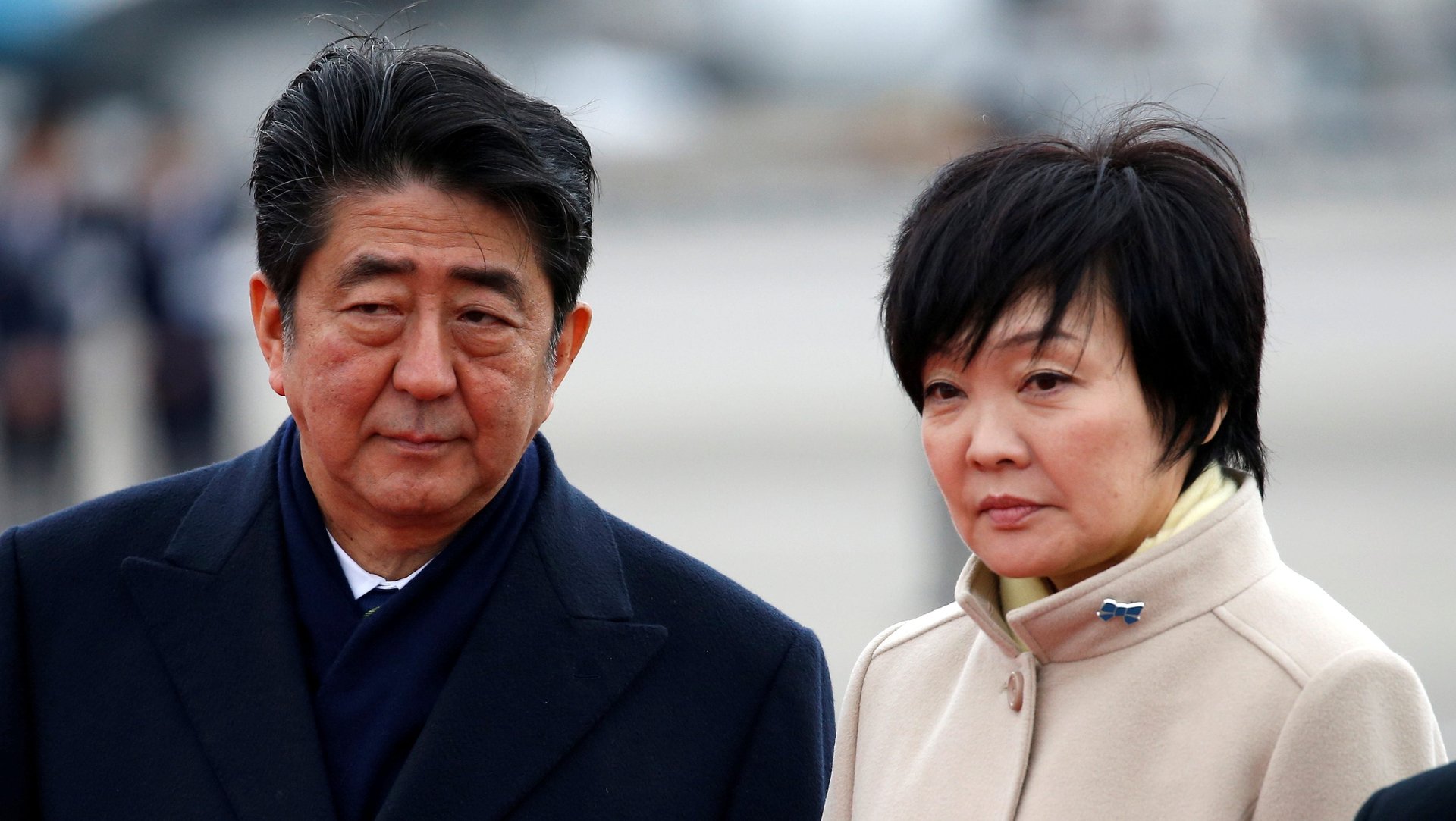“The Abe cabinet should resign en masse”: Japan’s big political scandal just got worse
For Shinzo Abe and his inner circle, it’s the scandal that won’t go away.


For Shinzo Abe and his inner circle, it’s the scandal that won’t go away.
Last year, the Japanese prime minister faced favoritism allegations over his wife Akie’s involvement with Moritomo Gakuen, an operator of ultraconservative schools that was somehow able to purchase government land in Osaka at a fraction of its value. Today (March 12), in a major admission, the finance ministry said it had altered related documents it submitted to parliament as part of the probe. The changes included removing the names of Abe, his wife, and finance minister Taro Aso. In addition, Abe and Aso’s names were nixed from an explanatory section about the school’s ties with far-right pressure group Nippon Kaigi.
Political rivals of Abe’s long-dominant Liberal Democratic Party pounced. Some called for the resignation of Aso. Others want more than that.
“Even if Aso resigns to take the blame, that won’t be enough for the public. The Abe cabinet should resign en masse,” a member of the main opposition Constitutional Democratic Party of Japan told the Kyodo news agency.
The scandal emerged early last year. At the time, Abe said he would resign if evidence showed that he or his wife had done favors for Moritomo. His wife stepped down as the school’s “honorary principal.” The issue then faded after the summer due to a lack of evidence.
However, this month the Asahi newspaper reported that the documents related to the transaction had likely been changed from the originals. Opposition lawmakers successfully demanded their release. On March 9, National Tax Agency head Nobuhisa Sagawa stepped down to take responsibility for the controversy. A few days earlier, a finance ministry official involved in the land sale was found dead from an apparent suicide.
Today the Mainichi newspaper reported that, according to senior government officials, dozens of passages in 14 related documents had been altered between February and April last year. In addition to the name removals, the use of the word “exceptional” to describe the land deal was also removed.
At the Tsukamoto Kindergarten that was built upon the plot of land, students marched to military music and recited instructions for patriotic behavior set out by a 19th-century emperor. The school said it aimed to instill pride in “the purest nation in the world.” Detractors said it promoted bigotry against Chinese and Koreans.
Shinzo Abe has supported a drive to change history textbooks to tone down depictions of Japan’s abuses in Asia during its empire years, to much consternation in South Korea, China, and other countries that suffered at its hands. After World War II, Abe’s grandfather, Nobusuke Kishi, was arrested by the Allied Occupation forces for being a suspected Class-A war criminal. The hawkish Abe wrote in his best-selling book Towards a Beautiful Country: My Vision For Japan, “Some people used to point to my grandfather as a ‘Class-A war criminal suspect,’ and I felt strong repulsion. Because of that experience, I may have become emotionally attached to ‘conservatism.'”
Until now, it had seemed as if little could unseat Abe from his position as the most powerful leader Japan has seen in decades. Now, the scandal could hurt his chances of becoming Japan’s longest-serving prime minister when he tries to win his party’s leadership race in September. As today’s calls for high-level resignations suggest, it could do more damage than that.